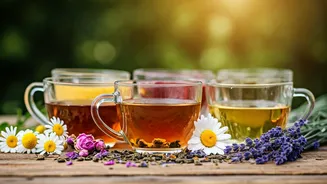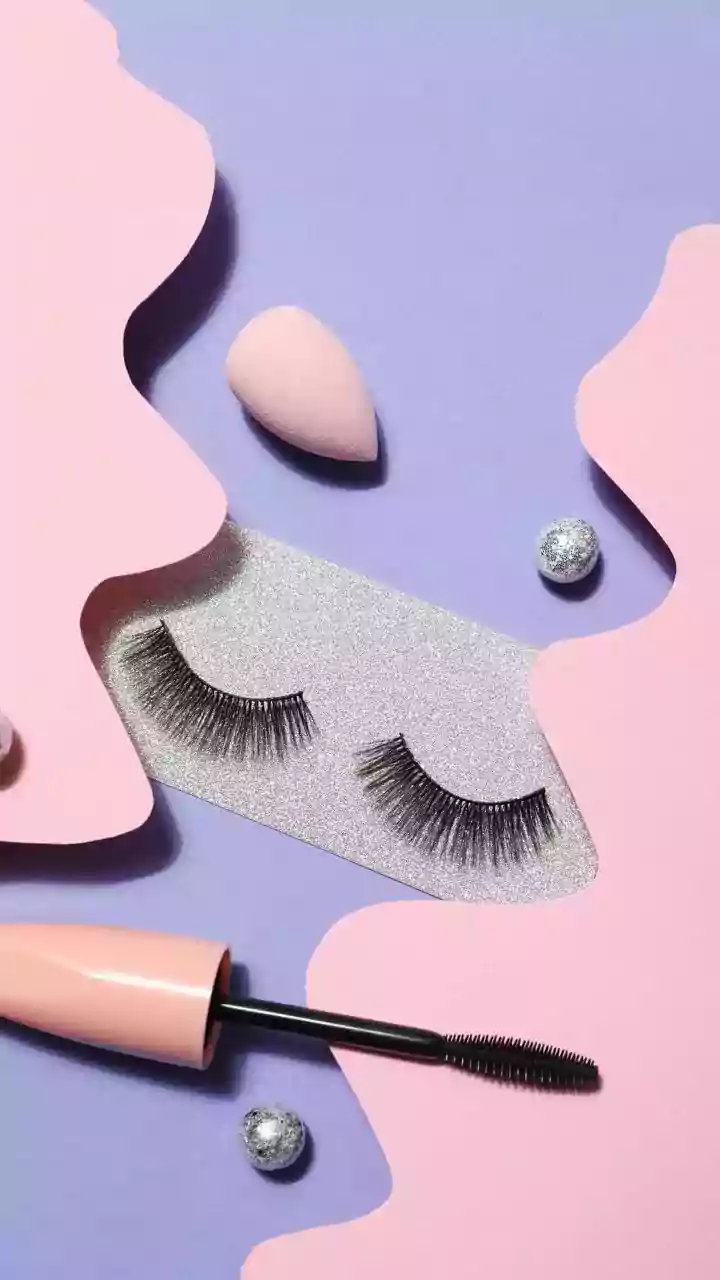Herbal Tea Basics
Herbal teas, distinct from traditional teas derived from the Camellia sinensis plant, are infusions made from herbs, spices, flowers, and fruits. They
are naturally caffeine-free, offering a gentle yet effective way to boost health. These infusions are rich in antioxidants, which combat free radicals, protecting the skin and hair from damage caused by environmental factors. Moreover, many herbal teas have anti-inflammatory properties that can soothe skin irritations and reduce redness. This makes them a suitable choice for various skin types, including sensitive skin. The ease of preparation, from simple steeping to more elaborate methods, makes herbal teas an accessible addition to any routine. They offer a versatile way to support skin and hair health, providing both internal nourishment and external benefits. Regular consumption of these teas can contribute to a noticeable improvement in skin clarity, reduced hair fall, and enhanced overall health, promoting a radiant and healthy appearance.
Chamomile Tea Highlights
Chamomile tea presents a multifaceted approach to beauty, offering relief from skin irritations and enhancing hair's natural beauty. Rich in antioxidants, it shields the skin from environmental stressors, promoting a radiant complexion. The anti-inflammatory actions of chamomile reduce redness and soothe sensitive skin, making it a great addition to your skincare routine. Additionally, its properties can assist in reducing dandruff and adding luster to hair. Chamomile tea can be used in several ways to support skin and hair health. It can be added to bathwater to soothe irritated skin, or used as a hair rinse to naturally lighten and brighten hair color. The versatility and mild nature of chamomile make it a suitable choice for all skin and hair types, offering a gentle yet effective pathway to a healthy and glowing appearance. Consider integrating chamomile tea into your daily regimen to experience its soothing and beautifying effects.
Green Tea: Uses and Benefits
Green tea’s extensive benefits for skin and hair stem from its high concentration of antioxidants and other beneficial compounds. When applied topically or consumed, it helps to repair and protect the skin from damage caused by sun and pollutants. Its properties can enhance the skin's radiance and combat signs of aging by neutralizing free radicals, which are a major cause of skin damage. For hair, green tea boosts growth by encouraging healthy hair follicles. This, in turn, can lead to reduced hair loss and improved hair thickness. The anti-inflammatory effects of green tea also help to alleviate skin issues such as acne and eczema. Applying green tea to the scalp may soothe irritation and promote healthy hair growth. Regular use of green tea can significantly improve the condition of both skin and hair, leaving you feeling revitalized and looking your best.
Rosehip Tea: Application
Rosehip tea’s high vitamin C content makes it exceptional for enhancing skin and hair health. Vitamin C is vital for collagen synthesis, helping to preserve skin's suppleness and reduce the look of wrinkles. Its potent antioxidant properties defend the skin from environmental harms, supporting a youthful look. The vitamins and essential fatty acids present in rosehip tea nourish the scalp and hair, promoting strong, vibrant strands. Regular use enhances skin radiance, evens out skin tone, and reduces blemishes, contributing to a glowing complexion. When used in hair care, rosehip oil can moisturize the scalp and promote healthier, shinier hair. The versatility and rich composition of rosehip tea make it an excellent choice for anyone seeking a natural boost to their beauty regimen. Integrating rosehip tea into your daily routine is an effective and enjoyable way to nurture your skin and hair.
Hibiscus Tea: Usage Tips
Hibiscus tea provides a unique combination of advantages for skin and hair care. Its rich concentration of antioxidants and AHAs (alpha-hydroxy acids) assists in exfoliating the skin and promoting smoother, younger-looking skin. AHAs gently remove dead skin cells, which brightens skin and reduces the prominence of wrinkles and fine lines. Regular use of hibiscus tea can increase skin elasticity, providing a more youthful look. When used for hair care, hibiscus strengthens hair follicles, lessens hair fall, and encourages growth. Additionally, hibiscus can enhance the hair's natural color and boost shine. To experience the benefits, you can drink hibiscus tea daily, use it as a face toner, or apply it as a hair rinse. The comprehensive impact of hibiscus on both skin and hair makes it a valuable addition to your beauty regimen. Embrace the power of hibiscus tea to rejuvenate and revitalize your skin and hair.



















